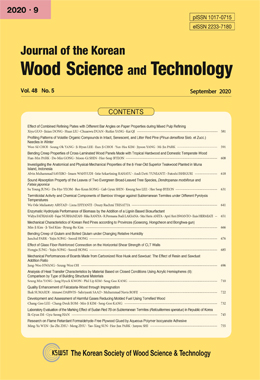Pulp refining is the major way to alter the properties of fibers and formed paper. Different combinations of the bar profile of the rotor and stator during low consistency refining processes directly affect the properties of the paper. In this study, a mixture of softwood and hardwood pulp was refined by varying the bar angle of the stator while that of the rotor is fixed at 0°. The pulp samples were collected at different refining times. Then, the pulp and paper properties, such as beating degree, fiber external fibrillation, and tensile and tear indexes were measured to explore the effects of the combined refining plates at different bar angles on paper properties. The results of the experiment show that the combined refining plate of 0° and 5° recorded the most significant improvement in the pulp beating degree and fiber external fibrillation. This consequently increased the fiber bonding area, which in turn, improved both the tensile and the tear indexes of the paper. Also, the influence of the combined refining plates with a larger bar angle on the paper properties was weaker compared to that of smaller angles. This study not only provides ideas for the bar profile design but also improves the optimal selection of refining plates.


